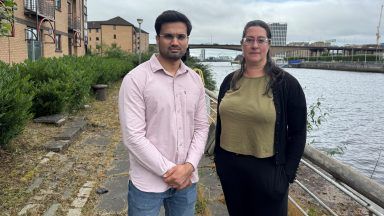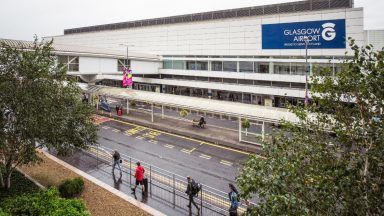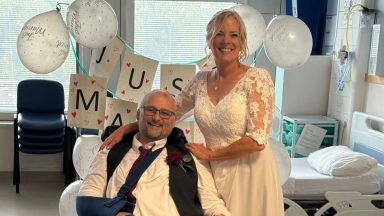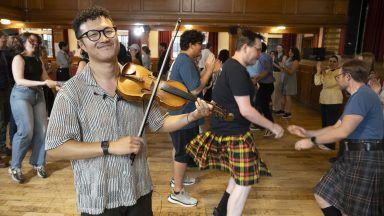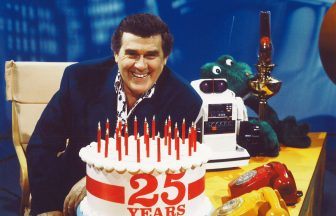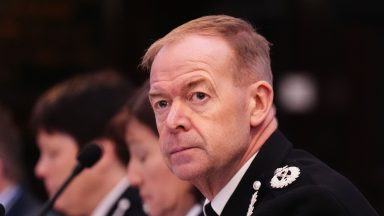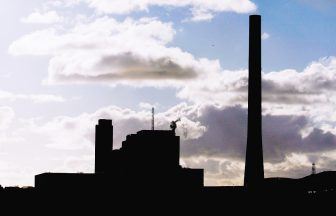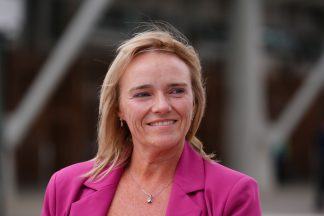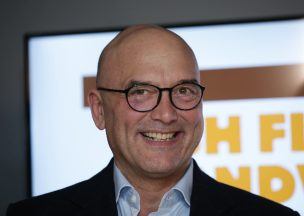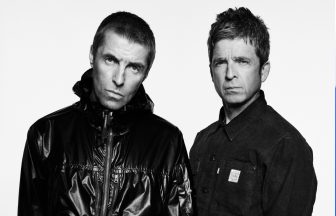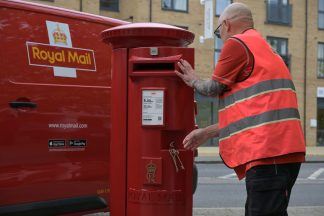Bob Cuddihy, who has died at the age of 78, was a journalist who was one of the best known faces on television in Scotland in the 1970s and 80s.
His seventeen year tenure (1972-89) as a reporter and presenter with STV, brought him into contact with an array of political, business and cultural figures, many of whom developed a friendship with the American, seduced by his vivacious personality which was allied to a twin compulsion for mischief and over-indulgent fun.
Robert Anthony Sean Cuddihy was born in New York on September 11, 1946. The Cuddihy’s had emigrated from Ireland in the late nineteenth century.
They prospered, developing a successful publishing business. The family also built property at 1088 Park Avenue for rent to Irish immigrants.
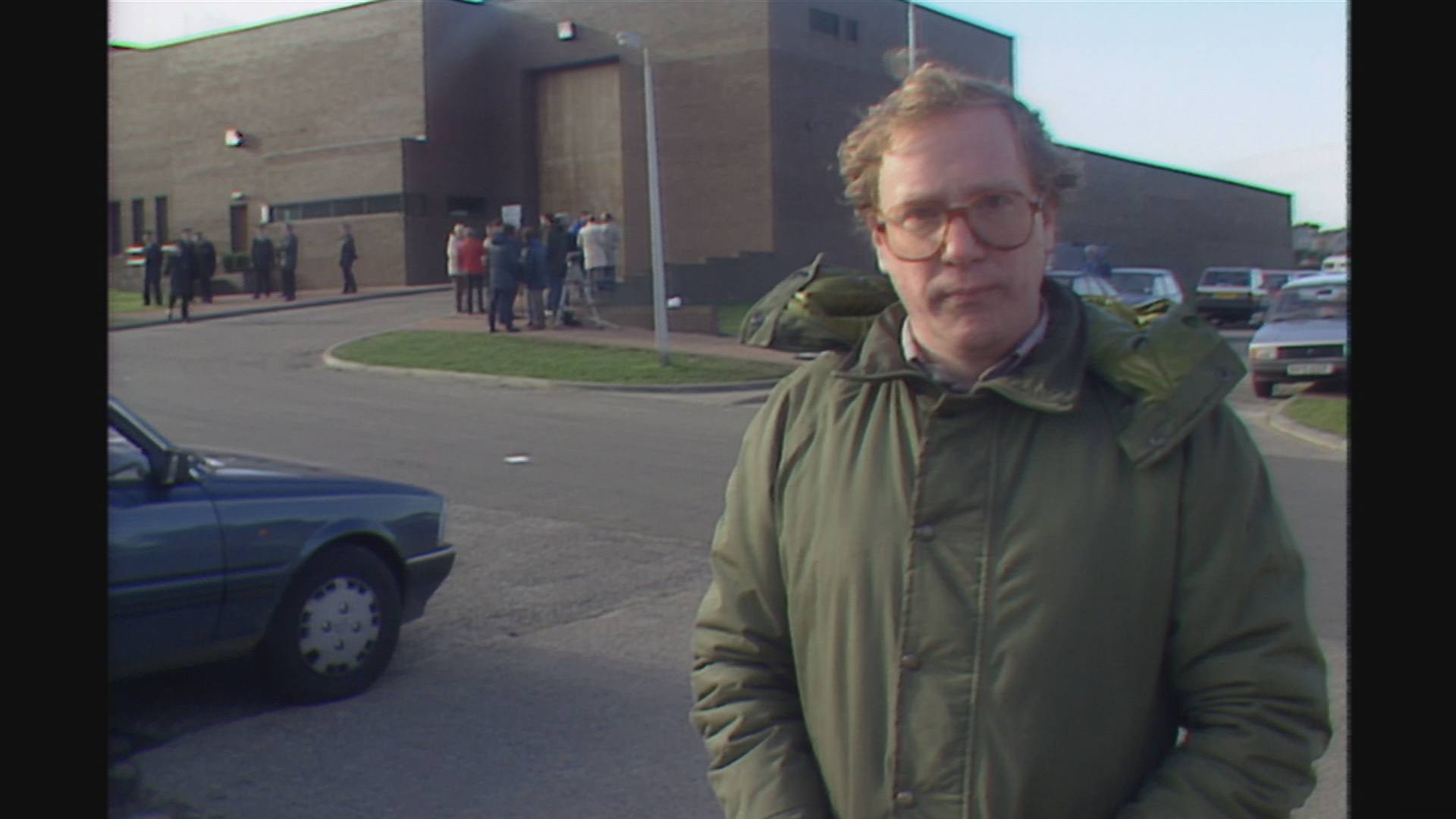 STV News
STV NewsThe family story is, however, marked by searing tragedy as first Bob’s father died in a car accident in 1957, aged 32, and then his mother in similar circumstances in 1961.
The five Cuddihy children were the subject of guardianship proceedings in the New York courts, the upshot of which saw them arrive in the UK in 1962 after their uncle Tom was appointed court guardian.
Bob and Deedee ended up at the radical Kilquhanity School in Castle Douglas, whilst Bob’s brothers Christopher and Sean and sister Mikey were placed at Summerhill school in Suffolk.
Kilquhanity was a school run by John and Morag Aitkenhead, who became surrogate parents to the emotionally traumatised teenager.
Writing an obituary of John Aitkenhead in 1998, Bob described him as “the last of a great generation of Scots”, adding that he “shared a common belief of freedom in education and the happiness of the children, allowing them to express their humanity”.
In 1966, Bob left Kilquhanity and took qualifications at Napier College as a passport to entry to Edinburgh University. His activity on campus was feverish.
He was on the student publications board, ran the successful rectoral campaign of Kenneth Allsop in 1968 following Malcolm Muggeridge’s resignation from the position.
He was prominent in the anti-apartheid movement campaigning against the University holding South African shares. He also set up the Islander newspaper on Arran, a radical fortnightly publication which was a precursor to the West Highland Free Press. Supporters included Brian Wilson and George Robertson.
Cuddihy also produced “The Red Paper on Education” in 1970, a compendium of progressive articles on education.
The same year he married Elizabeth Bryden in Lockerbie. The marriage produced three children, Aimee, Kate and Patrick although the relationship would not last long after Patrick’s birth.
In 1972, he was recruited by Russell Galbraith as a reporter for STV, the interview board being impressed by his big personality and limitless stock of ideas.
Cuddihy’s working life with Galbraith was the most significant of his career. Galbraith was a newspaper man when he joined STV in 1962, becoming a reporter, then director and for most of his tenure, a senior executive whose name would end the credits on programmes that represent a huge television archive.
Cuddihy was a regular on Scotland Today and the political programme Ways and Means (1973-86), presided over by the avuncular Colin MacKay.
He was a versatile broadcaster. Interviews with senior politicians didn’t phase him, nor with nobel prize winning author Saul Bellow. He could turn his hand to feature reporting and was not averse to dressing as a pantomime dame to do the “and finally” at Christmas time.
He worked on programmes featuring the former Conservative Prime Minister Sir Alec Douglas-Home, the British Fascist leader Sir Oswald Mosley and fronted documentaries on various stories linked to the world wars.
He interviewed five British Prime Ministers including friend Gordon Brown when he was making headlines in the 1970s, as well as US President Richard Nixon and former US Secretary of State, Henry Kissinger.
Cuddihy was a well read man. History, particularly military history and the geopolitics of the cold war, were passions, not surprising in a journalist who had been schooled by Professor John Erickson.
As evidence of his academic interest in defence policy, Cuddihy would be awarded a NATO fellowship which involved interviewing the likes of Denis Healey and Condoleeza Rice.
Bob Cuddihy had the intellectual range and presentational flair to go to the top of British television.
That he didn’t, was in part due to a certain anarchy that he brought to the business of work. And, by his own admission, his bohemian side, which in full flow pointed to a certain hedonism that ruled all.
He was a force beyond nature when in full cry. Immaculately attired in Gieves and Hawkes suit, a changing array of coloured spectacles and a wardrobe of tassled loafers, he cut a dashing figure around Edinburgh.
The genial diarist for The Scotsman Simon Pia, teasingly took irony to new heights when he recounted stories of a man he dubbed “The Quiet American”.
In telling a story, Cuddihy would whoop and holler in such a voluble way that the hard of hearing enjoyed some temporary respite.
His stories were always buttressed by a dedication to blasphemy, “Jeesus Christ Kiddo, wait to I tell you this”.
He would pick up the political gossip in the Jinglin’ Geordie before heading to another hostelry to gather the news from the courts, then to the New Town to meet perhaps an artistic impressario.
Bob Cuddihy’s Edinburgh was never dull and in his hey day there were few in the city’s establishment who had not supped with him.
He left STV in 1989, setting up a public relations and media training company Bowman Cuddihy Sullivan (BCS) of which I became an employee.
He was also appointed the Campaign Director of Channel 5 in Edinburgh an effort by civic leaders like George Kerevan and Eric Milligan to establish the new station in the Capital.
He also worked for Radio Forth presenting Edinburgh festival coverage from the Spiegeltent, the format ready made for his manic and unstructured style. And he hooked up with his great friend John Brown to do occasional TV work for Border Television.
With devolution, he worked for the National Pharmacy Association and its Scottish members providing advice in their interaction with government. He was a galaxy away from the frequently dry personalities who inhabit the public affairs world.
In truth, he missed television enormously. It provided opportunity to meet interesting people and it gave him a stage on which to perform. Without it, a little element of his joie de vivre died, but only a little.
His morale was probably at his lowest when the ultimate tonic arrived in time and it arrived in the form of Maggie Havergal.
She provided the charm and intellectual stimulus he needed. But she also kept his more impulsive side in check.
They married in February of 1999 and would enjoy twenty five years of requited love.
Bob Cuddihy loved public houses. They were his theatre and there were few stages that he didn’t grace, from the urbane charm of The Cafe Royal, to the hum of debate in The Abbotsford to the earthy good humour of The Port O’ Leith when under the ownership of the legendary Mary Moriarty.
Every year he held a 4th of July Party. The stars and stripes hung from the plant boxes of Maggie and Bob’s apartment in Constitution Street, a teaser for a party that would bring a diverse collection of people that were testament to his range of interests.
As he grew older, ill health came calling. In the last two years of his life he rarely left the flat but entertained friends to cocktails and conversazione, all in his unique style.
Even when struggling, the old Bob, that whirlwind of fun and great company was never far away.
Ageing incubates nostalgia, a pining for one’s golden age when life was never defined by frailty or a sense of resignation about what lies ahead.
For those like me, who look back with fondness, Bob will always be around , for the impression he made on those he met can never be diminished with the passing of time.
Even now I can hear The Quiet American in my head, “Hey Kiddo, it’s your round”.
He is survived by wife Maggie, brothers Christopher and Sean, sisters Deedee and Mikey and his children, Aimee, Kate and Patrick.
Bernard Ponsonby knew Bob Cuddihy for 35 years and was briefly employed by him at BCS.
Follow STV News on WhatsApp
Scan the QR code on your mobile device for all the latest news from around the country


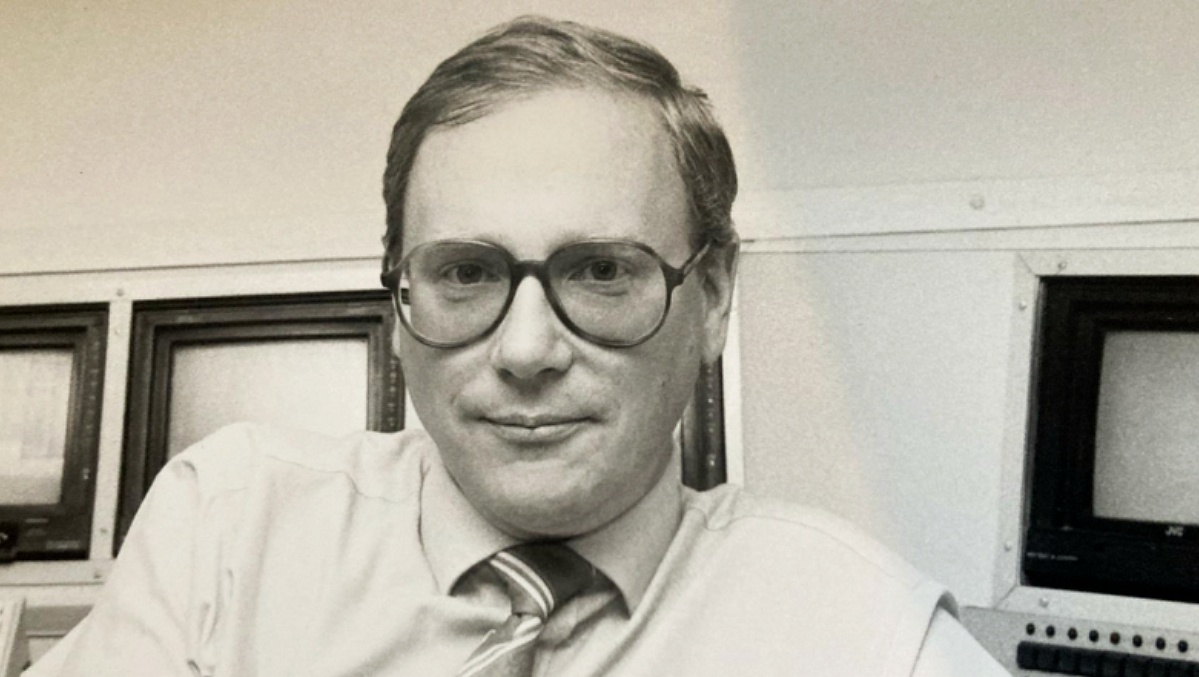 Supplied
Supplied